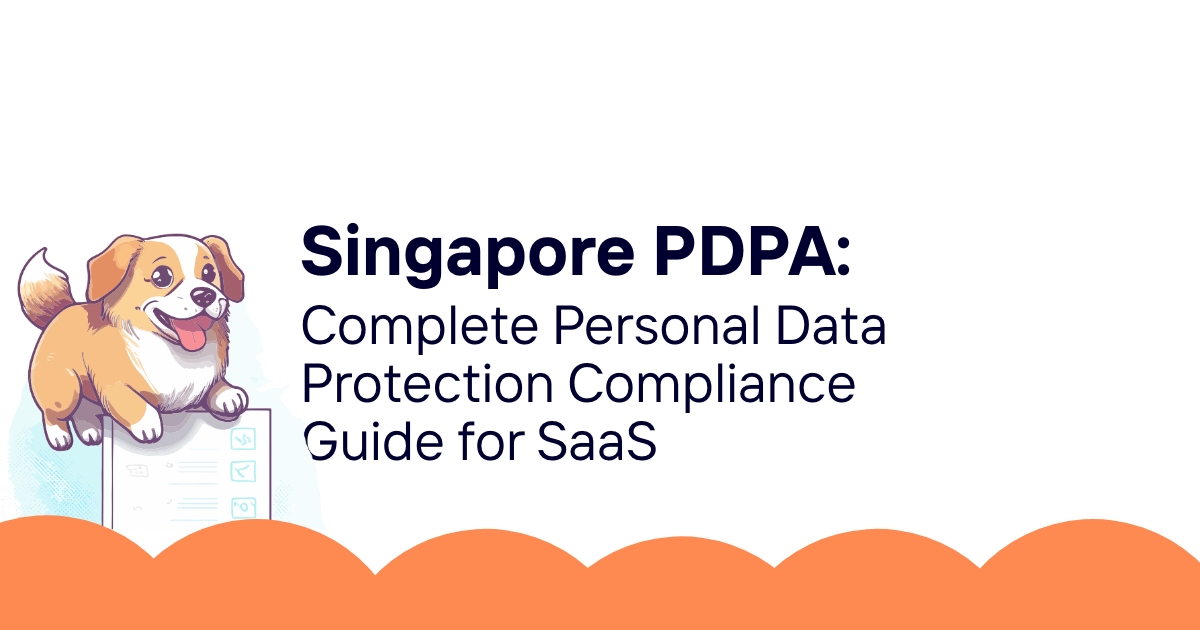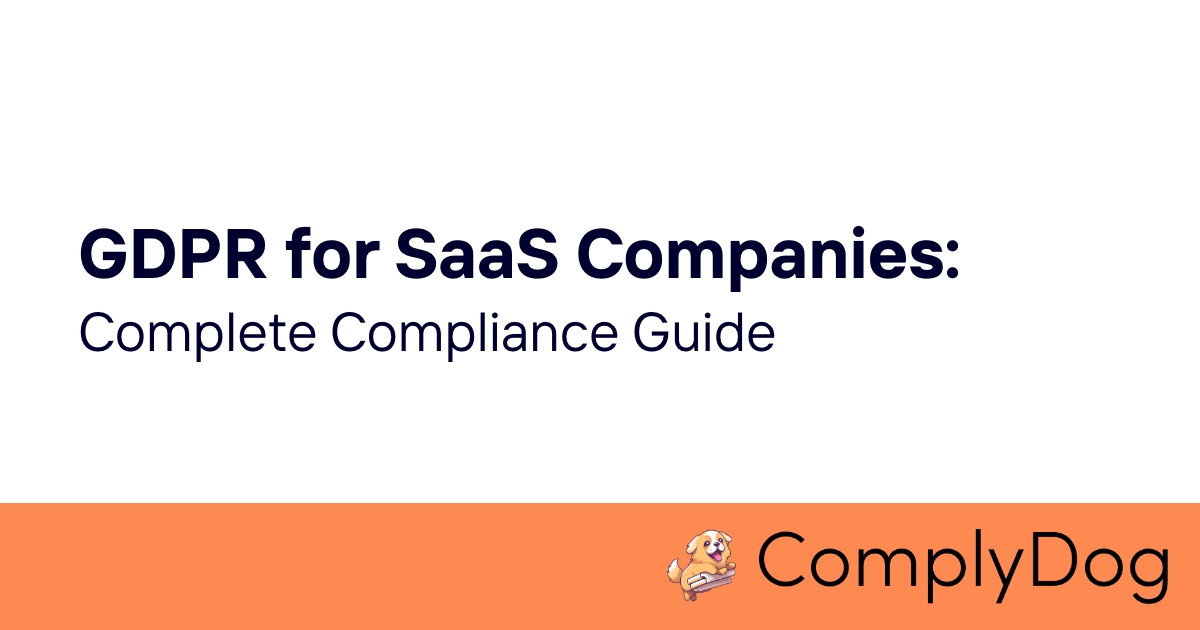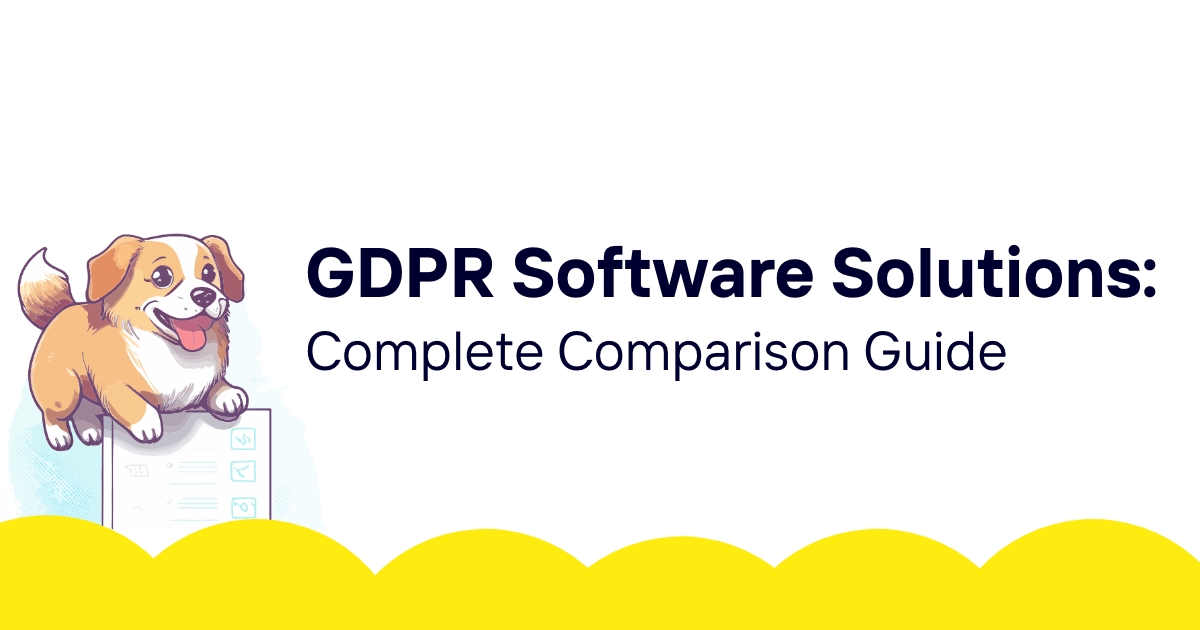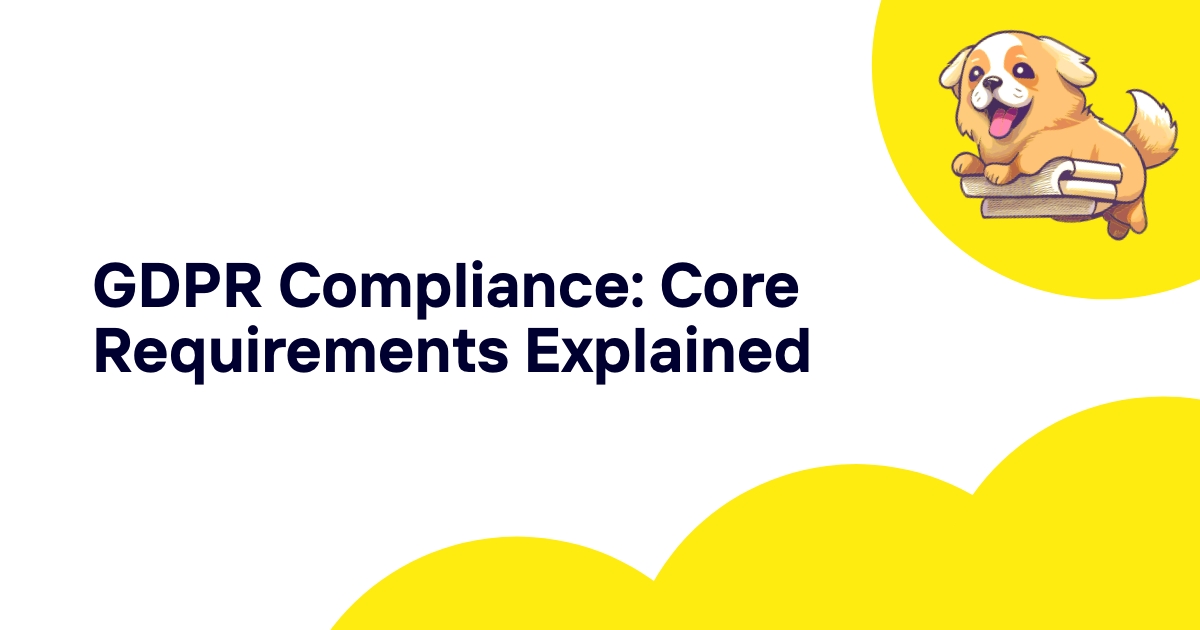Singapore's Personal Data Protection Act (PDPA) creates comprehensive data protection obligations that serve as a gateway to Asia-Pacific privacy compliance for SaaS companies. As a leading financial and technology hub, Singapore's approach to data protection balances strong privacy rights with practical business considerations that support innovation and economic growth.
PDPA applies to organizations in Singapore that collect, use, or disclose personal data, as well as organizations outside Singapore that collect personal data from individuals in Singapore. This broad application means most SaaS platforms serving Asian markets need to understand PDPA requirements.
Singapore's data protection framework emphasizes accountability-based compliance that rewards organizations demonstrating genuine privacy protection rather than just procedural compliance. This approach creates opportunities for SaaS companies to build comprehensive privacy programs that exceed minimum requirements while supporting business growth.
The Personal Data Protection Commission (PDPC) has developed extensive guidance specifically for technology companies, including cloud computing guidance, AI governance frameworks, and digital marketing best practices that help SaaS companies implement practical PDPA compliance.
Singapore serves as a regional hub for many international SaaS companies expanding into Asia-Pacific markets. PDPA compliance provides credibility and demonstrates privacy commitment that supports expansion throughout the region where privacy regulations are rapidly developing. ComplyDog helps SaaS platforms navigate Singapore privacy requirements alongside other APAC and international frameworks through comprehensive compliance management.
Singapore PDPA Overview for SaaS Companies
PDPA creates accountability-based data protection obligations that emphasize practical privacy protection while supporting Singapore's role as a leading technology and financial services hub.
PDPA Scope and Application:
PDPA applies to organizations that collect, use, or disclose personal data in Singapore, regardless of whether the organization is based in Singapore. The law also covers organizations outside Singapore that collect personal data from individuals located in Singapore.
This broad territorial scope means SaaS platforms with Singaporean customers, users, or data collection activities need PDPA compliance regardless of company location or data processing infrastructure.
Personal Data Definition:
PDPA defines personal data as data that can identify an individual, whether on its own or in combination with other information. This includes user accounts, IP addresses, device identifiers, behavioral analytics, and location data collected by SaaS platforms.
The definition focuses on practical identifiability rather than technical complexity, making it important to consider how different data types can be combined to identify individuals in real-world scenarios.
Key PDPA Obligations:
PDPA establishes several core obligations including:
- Consent obligation - Obtaining appropriate consent for personal data collection and use
- Purpose limitation - Using personal data only for disclosed purposes
- Notification obligation - Informing individuals about data collection and use
- Access and correction - Providing individuals with access to their personal data
- Data protection obligation - Implementing reasonable security measures
- Retention limitation - Retaining personal data only as long as necessary
- Transfer limitation - Ensuring adequate protection for overseas data transfers
These obligations create comprehensive privacy protection framework that must be implemented throughout SaaS platform operations.
Accountability-Based Approach:
PDPA emphasizes accountability-based compliance where organizations must demonstrate appropriate privacy protection rather than just following prescribed procedures. This approach rewards thoughtful privacy implementation over checkbox compliance.
Design privacy programs that demonstrate genuine protection commitment while supporting business operations and innovation that align with Singapore's technology-forward business environment.
Industry-Specific Considerations:
Singapore's concentration of financial services, healthcare, and technology companies creates specific PDPA compliance considerations for SaaS platforms serving these regulated industries.
Consider industry-specific privacy expectations and regulatory requirements that might affect PDPA implementation for platforms serving Singapore's key economic sectors.
For insights on implementing accountability-based compliance, check out our Brazil LGPD guide which addresses similar comprehensive privacy frameworks.
PDPA Consent Requirements for SaaS
PDPA consent obligations require SaaS companies to obtain appropriate consent for personal data collection and use while supporting platform functionality and user experience.
Consent Principles:
PDPA consent must be voluntary, informed, and specific to particular purposes. Organizations must clearly explain what personal data they're collecting and how it will be used before obtaining consent.
Design consent mechanisms that provide clear information about data collection purposes while avoiding consent fatigue that could undermine genuine understanding and meaningful choice.
Express vs Deemed Consent:
PDPA allows both express consent (explicit agreement) and deemed consent (consent that can be reasonably inferred from circumstances). The appropriate consent type depends on data sensitivity and collection context.
Express consent is generally required for sensitive personal data or unexpected uses, while deemed consent might be appropriate for routine business operations that individuals would reasonably expect.
Consent for Different Purposes:
SaaS platforms often collect personal data for multiple purposes including service delivery, analytics, marketing, and customer support. Each purpose requires appropriate consent or alternative legal basis.
Implement granular consent that allows individuals to choose which purposes they consent to rather than requiring all-or-nothing consent for platform use.
Consent Withdrawal:
Individuals must be able to withdraw consent, and organizations must provide reasonable means for withdrawal while explaining the consequences of withdrawal on service delivery.
Create consent withdrawal mechanisms that respect individual choices while clearly communicating how withdrawal affects platform functionality and service availability.
Consent Documentation:
Maintain records of consent decisions including what was consented to, when consent was obtained, and how individuals were informed about data collection and use purposes.
Implement consent tracking that provides sufficient detail for PDPA compliance demonstration while supporting individual rights exercise and privacy management.
Individual Rights Under PDPA
PDPA provides individuals with specific rights regarding their personal data that SaaS companies must support through appropriate systems and procedures.
Access Rights Implementation:
Individuals have rights to request information about what personal data an organization holds about them, how it's being used, and who it's been disclosed to within the past year.
Design access systems that can provide comprehensive information about personal data processing while protecting business confidential information and other individuals' privacy through efficient response mechanisms.
Correction Rights Management:
Individuals can request correction of inaccurate or incomplete personal data, requiring SaaS platforms to implement systems that can address factual errors while handling disputes appropriately.
Build correction workflows that distinguish between objective factual errors requiring correction and subjective assessments or algorithmic outputs that individuals might question but don't constitute inaccuracies.
Access and Correction Procedures:
PDPA requires responding to access and correction requests within reasonable timeframes, typically 30 days unless exceptional circumstances justify extensions with individual notification.
Implement efficient request processing systems that can handle routine requests through automated mechanisms while providing escalation procedures for complex situations requiring manual review.
Fees for Access Requests:
Organizations can charge reasonable fees for access requests, but fees cannot be excessive or create barriers to accessing personal data, particularly for simple requests.
Develop fee structures that recover reasonable costs for complex requests while providing free or low-cost access for routine requests that can be handled through automated systems.
PDPA Data Protection Obligations
PDPA requires organizations to implement appropriate measures to protect personal data against unauthorized access, collection, use, disclosure, or modification.
Security Measures Implementation:
Organizations must make reasonable security arrangements to protect personal data in their possession or control, considering the nature of personal data and potential harm from unauthorized access.
Implement security measures appropriate to data sensitivity and business context while considering industry standards and evolving threat landscape that affects SaaS platforms.
Data Breach Management:
While PDPA doesn't mandate data breach notification, organizations should implement incident response procedures that can identify, contain, and remediate security incidents affecting personal data.
Develop comprehensive incident response procedures that address PDPA requirements while coordinating with other jurisdictional breach notification obligations for international operations.
Staff Training and Awareness:
Ensure staff handling personal data understand PDPA requirements and organizational privacy policies through appropriate training and awareness programs.
Implement role-specific privacy training that addresses PDPA obligations while providing practical guidance for daily operations and customer interactions.
Vendor and Third-Party Management:
Organizations remain responsible for personal data even when processed by third parties, requiring appropriate vendor management and contractual protection for personal data.
Develop vendor assessment and management procedures that ensure third parties provide appropriate personal data protection while supporting business operations and service delivery.
PDPA Cross-Border Data Transfer Rules
PDPA restricts transfers of personal data outside Singapore unless the receiving jurisdiction has comparable data protection standards or appropriate safeguards are implemented.
Comparable Standards Assessment:
PDPA allows transfers to jurisdictions with data protection standards comparable to Singapore's PDPA. The PDPC maintains guidance on jurisdictions considered to have comparable standards.
Monitor PDPC guidance on comparable jurisdictions and prepare alternative transfer mechanisms for countries that don't qualify for unrestricted transfers but are necessary for business operations.
Contractual Safeguards:
Organizations can transfer personal data overseas through appropriate contractual arrangements that ensure receiving parties provide comparable protection to PDPA standards.
Implement contractual transfer mechanisms that satisfy PDPA requirements while supporting international business operations and cloud infrastructure spanning multiple jurisdictions.
Consent for Overseas Transfers:
Individuals can provide consent for specific overseas transfers after being informed about transfer purposes, destination jurisdictions, and protection measures applied to their data.
Design transfer consent mechanisms that provide clear information about international processing while supporting business operations requiring global data processing capabilities.
Corporate Group Transfers:
Consider whether intra-group transfers require specific mechanisms or can rely on organizational controls that ensure consistent data protection across international operations.
Evaluate corporate transfer arrangements that provide appropriate protection for Singapore personal data while supporting efficient international business operations.
PDPC Guidance for Technology Companies
The Personal Data Protection Commission has developed specific guidance for technology companies that helps SaaS platforms implement practical PDPA compliance.
Cloud Computing Guidance:
PDPC provides specific guidance on cloud computing arrangements that addresses common SaaS compliance questions about data residency, security responsibility, and vendor management.
Use PDPC cloud guidance to inform SaaS architecture decisions and vendor relationships that affect personal data protection and PDPA compliance obligations.
Artificial Intelligence Governance:
PDPC has developed AI governance frameworks that address algorithmic decision-making, automated processing, and AI system accountability that affect SaaS platforms using AI features.
Implement AI governance practices that align with PDPC guidance while supporting innovation and customer experience through responsible AI development and deployment.
Digital Marketing Best Practices:
PDPC guidance on digital marketing addresses common SaaS marketing compliance questions about consent, tracking, analytics, and customer communication that affect platform marketing features.
Design marketing and analytics features that follow PDPC guidance while supporting customer acquisition and platform improvement through privacy-respecting marketing practices.
Privacy by Design Implementation:
PDPC promotes privacy by design approaches that integrate privacy protection into system design and business processes from the beginning rather than as compliance afterthoughts.
Implement privacy by design principles that align with PDPC guidance while supporting business innovation and customer trust through proactive privacy protection.
Singapore Market Considerations
Successfully implementing PDPA compliance requires understanding Singapore's business environment, cultural context, and market expectations that affect privacy implementation strategies.
Business Hub Role:
Singapore's role as a regional business and technology hub means PDPA compliance often serves as foundation for broader APAC privacy strategies and regional market expansion.
Design PDPA compliance that supports regional expansion while demonstrating privacy leadership and commitment to comprehensive data protection across Asian markets.
Cultural Privacy Expectations:
Singaporean privacy expectations reflect both Asian cultural values and international business standards, requiring privacy implementations that respect cultural context while meeting international standards.
Adapt privacy communication and customer interaction approaches to align with Singaporean cultural expectations while maintaining PDPA compliance and international privacy best practices.
Technology Innovation Support:
Singapore's emphasis on technology innovation and digital transformation creates opportunities for SaaS companies that implement privacy protection as competitive advantage rather than compliance burden.
Build privacy capabilities that support innovation and differentiation in Singapore's competitive technology market while demonstrating privacy leadership and customer commitment.
Financial Services Integration:
Singapore's role as a financial services hub creates specific considerations for SaaS platforms serving financial institutions with enhanced privacy and security expectations.
Consider financial services privacy requirements and expectations when implementing PDPA compliance for platforms serving Singapore's banking, insurance, and investment sectors.
PDPA Documentation and Record Keeping
PDPA's accountability approach requires comprehensive documentation that demonstrates privacy protection commitment while supporting operational efficiency and regulatory oversight.
Privacy Policy Development:
Develop privacy policies that address PDPA transparency requirements while reflecting Singapore's business context and providing practical information for individual decision-making.
Create privacy policies that satisfy PDPA requirements while supporting regional business operations and demonstrating privacy commitment to Singapore customers and business partners.
Data Processing Documentation:
Maintain documentation of personal data processing activities that demonstrates PDPA compliance while providing practical guidance for business operations and decision-making.
Create processing documentation that supports accountability demonstration while providing operational value through clear guidance for staff and business processes.
Consent Management Records:
Document consent decisions, withdrawal mechanisms, and individual communications that demonstrate PDPA compliance while supporting individual rights exercise and privacy management.
Implement consent documentation that provides sufficient detail for compliance demonstration while supporting efficient consent management and individual interaction.
Training and Compliance Records:
Maintain records of privacy training, compliance monitoring, and improvement activities that demonstrate ongoing commitment to personal data protection and PDPA compliance.
Document privacy program activities that show systematic attention to data protection while supporting continuous improvement and organizational privacy culture development.
Ready to succeed in Singapore and the broader APAC market? Use ComplyDog and build comprehensive privacy programs that satisfy PDPA requirements while demonstrating privacy leadership and supporting regional business expansion throughout Asia-Pacific markets.


















